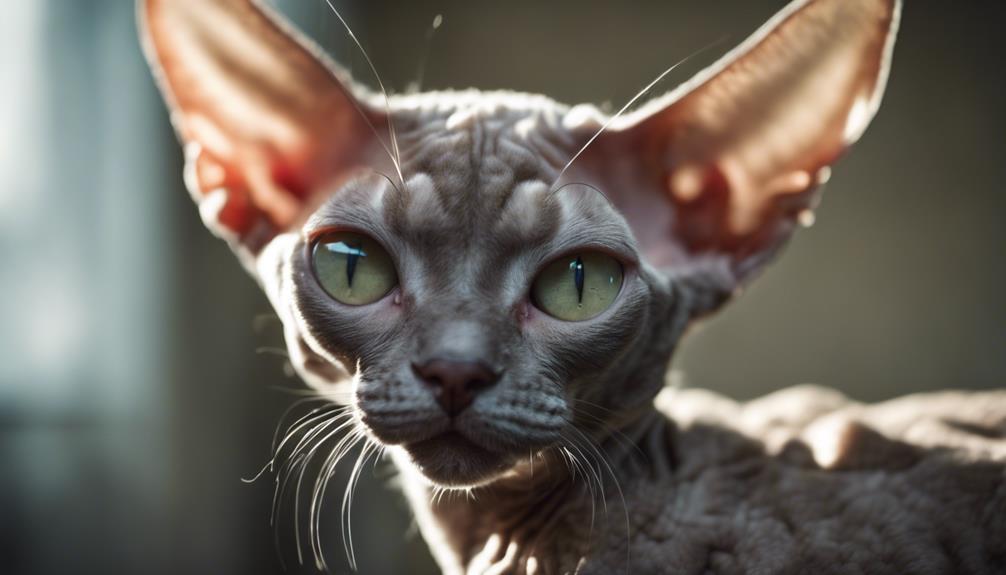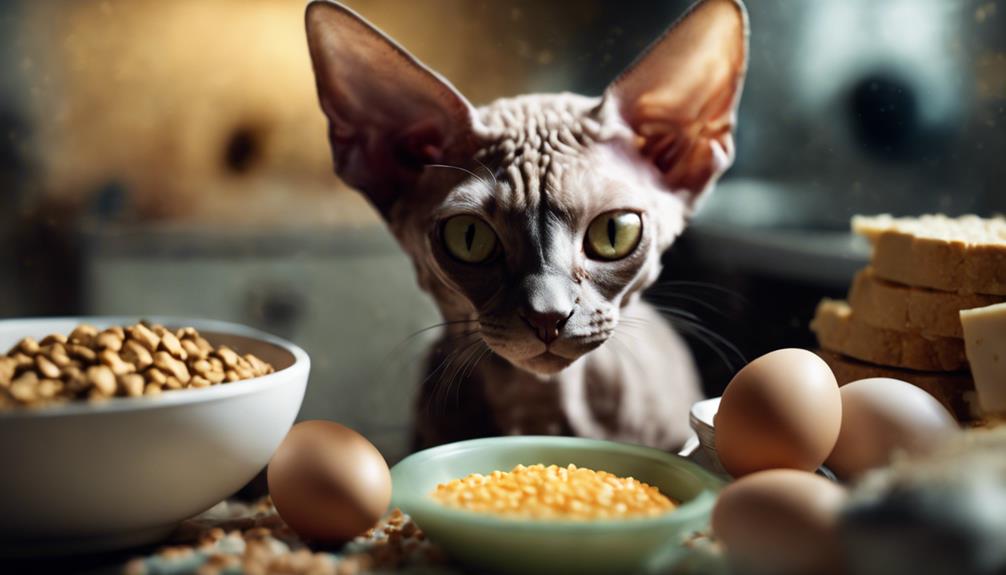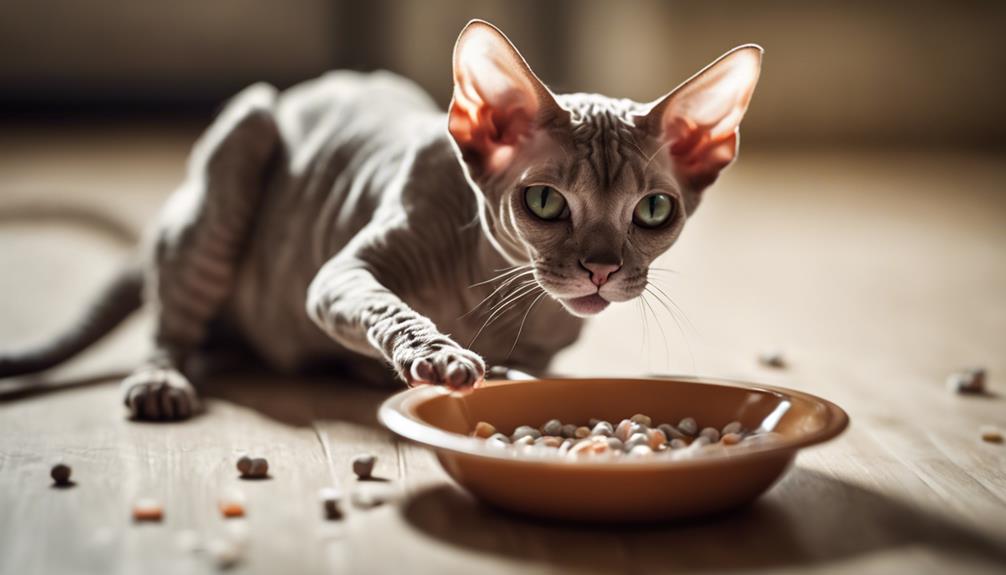You might be surprised to learn about the array of health concerns that can affect Devon Rex cats. From musculoskeletal issues to cardiovascular problems, these unique felines are prone to a variety of conditions that require careful attention.
Understanding these potential health issues is crucial for providing the best care for your furry companion. So, what exactly are the common health concerns of the Devon Rex that every owner should be aware of?
Key Takeaways
- Hypertrophic cardiomyopathy and patellar luxation are prevalent in Devon Rex.
- Regular monitoring for cardiovascular and musculoskeletal issues is essential.
- Responsible breeding practices help reduce inherited health problems in Devon Rex.
- Specialized skin and dental care are crucial for maintaining overall health in Devon Rex.
Inherited Health Issues of Devon Rex
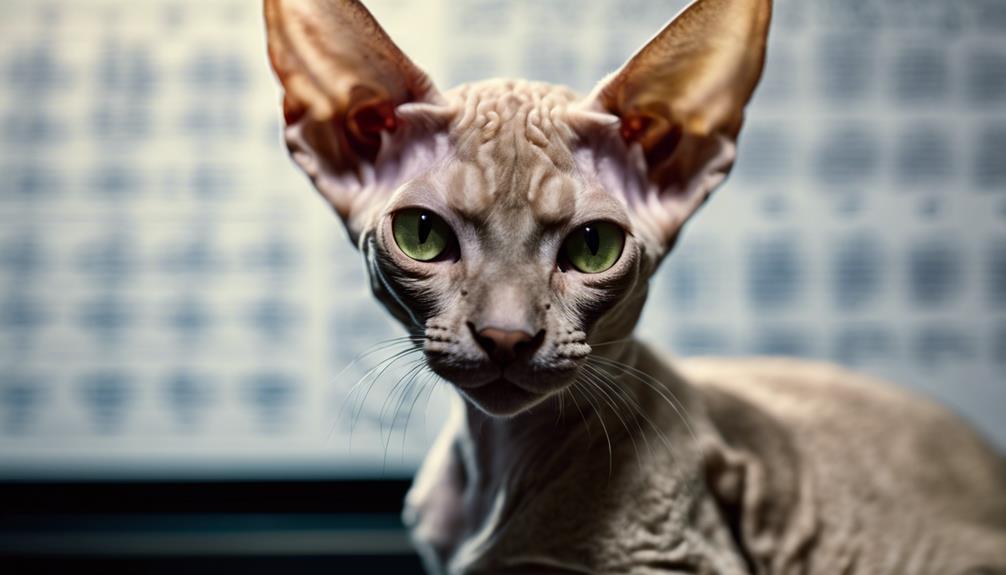
When considering the Devon Rex breed, it’s crucial to be aware of the inherited health issues that commonly affect these cats. Two significant concerns are hypertrophic cardiomyopathy, a hereditary heart disease, and patellar luxation, where the kneecap can dislocate. Responsible breeders play a vital role in mitigating these risks by providing screening evidence for these hereditary conditions in Devon Rex cats.
To safeguard your Devon Rex cat’s health, pet insurance is highly recommended. Embrace Pet Insurance Agency offers coverage for breed-specific conditions like those found in Devon Rex cats, subject to specific terms and conditions. By investing in pet insurance, you can ensure that your furry friend receives the necessary care if any hereditary health issues arise.
Being proactive about understanding and addressing inherited disorders in Devon Rex cats can help you navigate potential health concerns confidently. Trusting responsible breeders, considering pet insurance, and staying informed about breed-specific conditions are essential steps in providing the best care for your beloved Devon Rex companion.
Cardiovascular Health Concerns
Cardiovascular health concerns in Devon Rex cats primarily revolve around hypertrophic cardiomyopathy, a hereditary condition characterized by thickening of the heart muscle. This condition, with a severity rating of 4.5/5, can significantly impact the heart’s ability to function properly.
To address this issue effectively, consider the following:
- Regular monitoring is essential: Keeping a close eye on your cat’s cardiovascular health can help detect any changes early on.
- Early detection is key: Identifying hypertrophic cardiomyopathy in its initial stages allows for timely intervention and management.
- Treatment options focus on symptom alleviation: While there’s no cure, treatments aim to enhance your cat’s quality of life.
- Responsible breeders play a crucial role: Screening for cardiovascular issues like hypertrophic cardiomyopathy before breeding can help reduce its prevalence in the Devon Rex population.
Musculoskeletal Conditions in Devon Rex
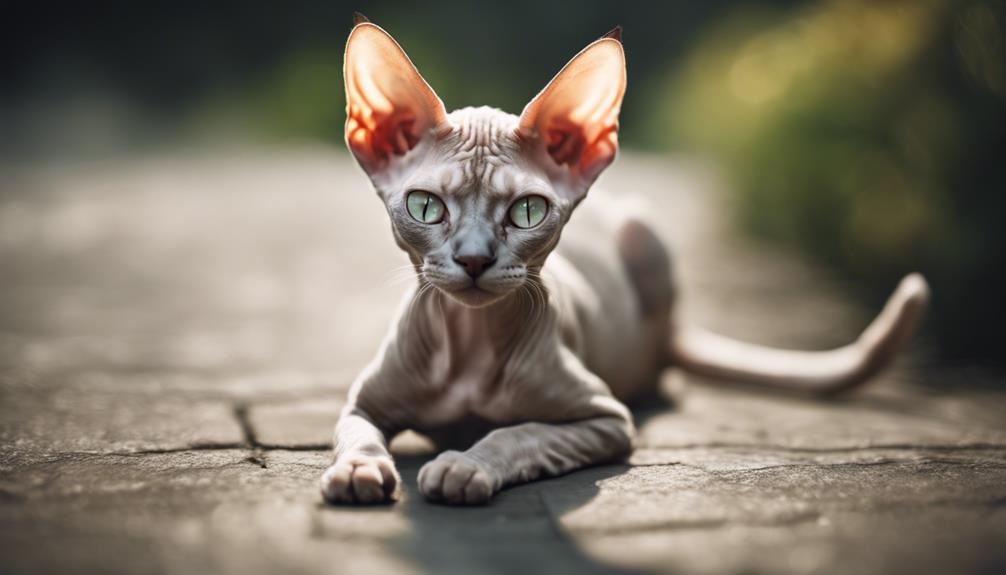
Devon Rex cats, known for their unique genetic predispositions, are particularly susceptible to musculoskeletal conditions that can significantly impact their physical well-being. Two common musculoskeletal conditions in Devon Rex cats are Devon Rex myopathy, characterized by muscle weakness and spasticity, and Patellar luxation, where the kneecap slips out of place, sometimes necessitating surgical intervention. These issues can affect the mobility and overall quality of life for these feline companions. Monitoring your Devon Rex cat regularly is crucial for early detection of musculoskeletal problems, enabling prompt management and treatment. Responsible breeding practices play a vital role in reducing the prevalence of musculoskeletal conditions in Devon Rex cats and improving their overall health. By prioritizing early detection, appropriate care, and responsible breeding, you can help your Devon Rex enjoy a healthier and more comfortable life.
| Musculoskeletal Conditions | Impact on Cats | Importance |
|---|---|---|
| Devon Rex Myopathy | Muscle weakness/spasticity | Early Detection/Treatment |
| Patellar Luxation | Kneecap displacement | Surgical Intervention |
Dermatological Problems in Devon Rex
Dermatological issues commonly affect Devon Rex cats due to their unique coat texture, requiring regular grooming and specialized skin care routines for optimal management. Some key points to consider regarding dermatological problems in Devon Rex cats include:
- Devon Rex cats may be prone to conditions like urticaria pigmentosa, characterized by oily buildup and red spots on the skin.
- The distinctive coat texture of Devon Rex cats can make them more susceptible to skin sensitivities and greasiness, leading to dermatological issues.
- Regular grooming practices are essential for managing skin health in Devon Rex cats with their special coat type.
- Skin conditions such as urticaria pigmentosa may necessitate specific treatments and veterinary care to alleviate symptoms and maintain overall skin health.
Renal and Dental Health Challenges
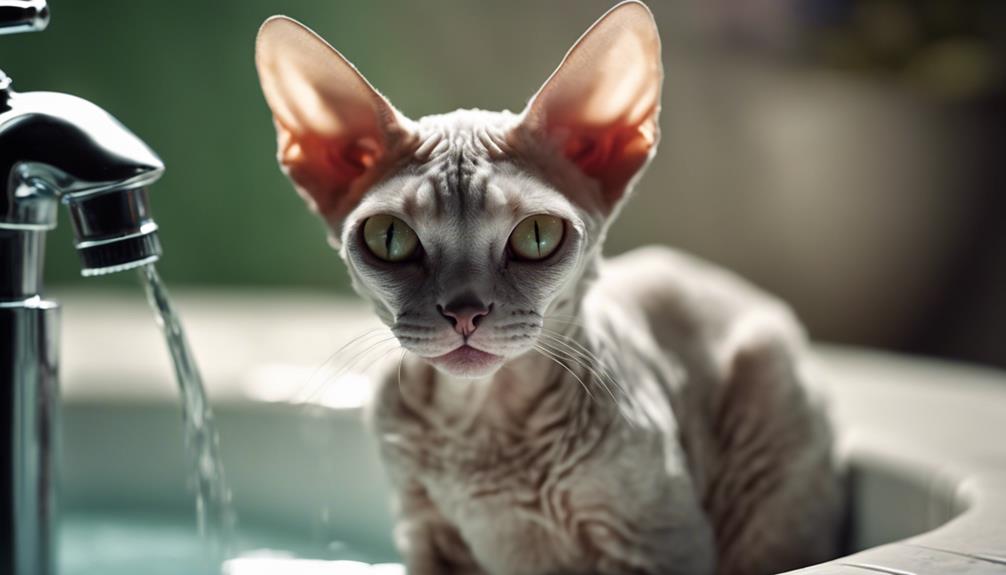
Given the genetic predisposition of Devon Rex cats to polycystic kidney disease (PKD), it’s crucial to address both renal and dental health challenges in these unique felines to ensure their overall well-being and longevity. Regular vet check-ups are vital to monitor kidney health and manage any potential renal issues promptly.
Dental care is equally important for Devon Rex cats due to their increased risk of dental disease. Preventive care plays a significant role in maintaining kidney health, considering their genetic susceptibility to renal problems. Mitigating dental health challenges in Devon Rex cats involves providing a balanced diet and implementing proper dental hygiene practices.

